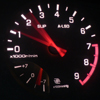What I Found Out About Ethanol In Fuel
Announcements
-
Similar Content
-
Latest Posts
-
I wasn’t able to replicate the sound anymore. It was a one time sound so maybe it was just coincidence but it was like small pebbles being dropped in a coke can. should I try cleaning the MAF? It could be it’s functioning but dirty? I don’t know.
-
Update 4: Hi all. The car drives again! Haven't driven for long, only to store it in the garage again, but the test drive was successful. The coolant and oil leaks seem to be fixed for now. Temps on the engine were also very good, while moving I never even saw 80C water during the approx. 30 minute drive. Ate up all the coolant in the reservoir though so will have to fill that even more when I go to the car next time. One thing that pisses me off is that the RPM gauge is still f**ked, I even resoldered the board twice and used copper paste on the silly screws that are used as connections. Next time I take it out I'll take apart the board and fit new components, I'll see if I can get a replacement IC for it. I have an appointment set for 22nd of September for the engine tune to 370hp. Alignment also still needs to be done. My hope is that I can get all the legal stuff over with by the end of this season. Anyone of you have advice regarding intercoolers? Currently there is an APEXI core fitted, one of those weird hybrid ones, 600x270x76. I don't think it's bad but it's not new and now I still have the chance to change it now to legally include it in the paperwork. Only issue is that the only options that would arrive in time are a HKS Type R intercooler or generic Ebay spec intercoolers comparable to a JustJap one. Ideally I'd order a Plazmaman but it takes over a month to receive which would mean making the car legal has to wait until next season. Would love to hear some input on this. Same story for my injectors, the previous owner was a nunce and put ID 1050x on the engine. They work but are obviously not ideal at "normal" power levels. But I don't see a reason to change them unless the tuner says it's necessary. I read online before buying a different exhaust that the top secret style rear diffusers won't fit due to the size of the rear resonators. My buddy and I made it work by slightly "adjusting the shape" of the mounting bracket and making some spacers out of 3d print for the mounting bolts. Fits like a charm. Just putting this here in case someone has this problem. Even the hefty HKS Silent Hi Power rear can fits without hitting anything.
-
It's needed for rolling idle up, and I think it is a decider on VCT also.
-
I mean, not really. Link ECU's can absolutely still have errors from the ECU thinking it's getting a sensor it's not expecting. I would imagine the speed at the ECU level in Nistune does absolutely nothing anyway? I assume the ECU does not do any fancy TC stuff with regards to front+rear wheel speed or anything of that like anyway. Someone who uses Nistune may be more fluent in it.
-








Recommended Posts
Create an account or sign in to comment
You need to be a member in order to leave a comment
Create an account
Sign up for a new account in our community. It's easy!
Register a new accountSign in
Already have an account? Sign in here.
Sign In Now